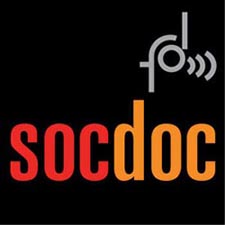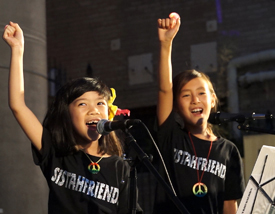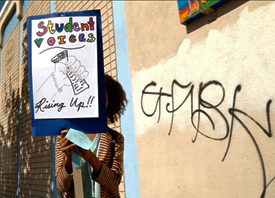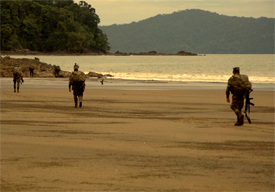UC Santa Cruz presents the eighth annual exhibition of thesis films from the Film and Digital Media Department’s masters program in Social Documentation on Wednesday, June 11, at the Del Mar Theater in downtown Santa Cruz.
Five engaging documentary films will be presented, beginning at 6 p.m. The student filmmakers will each be in attendance and available after the screenings to discuss their films.
Admission is free, and the public is invited.
This year’s Soc Doc cohort has created documentaries dealing with neglected and forgotten histories, such as Jack Chapman’s photographic and video work unearthing a journey of a radical American worker’s “army” in Bread or Blood, and Ricardo Velasco’s film, After the Crossfire, about memory, massacre and displacement in the remote village of Juradó, Colombia.
Marissa Kitazawa’s Legacy of Resilience traces the legacy of Japanese-American social engagement across generations, while Lena Jackson’s Crenshaw questions the cost of public school “reconstitution” to local community members in South Los Angeles.
Flatlands, Alex Melhuish’s bold documentary, follows the story of gun violence and survival in the Flatlands of East Oakland.
“The work you will see is the culmination of an intense two years of immersion on the part of our students in documentary traditions and craft, scholarly research and analysis, aesthetic style, and fearless storytelling,” noted John Jota Leaños, Director of Graduate Studies and Associate Professor of Social Documentation.
Since its inception in 2005, UCSC’s Social Documentation Program has paired film students with faculty in a wide variety of departments, enabling deep research into film subjects and the roots of complex issues and cultures.
Students in the program have earned grants and awards, distribution of their films, and festival exposure.
”These social documentaries demonstrate the work of engaged scholarship and represent a new generation of media makers,” said Leaños.
For more information, e-mail socdoc@ucsc.edu or call (831) 459-3445.







